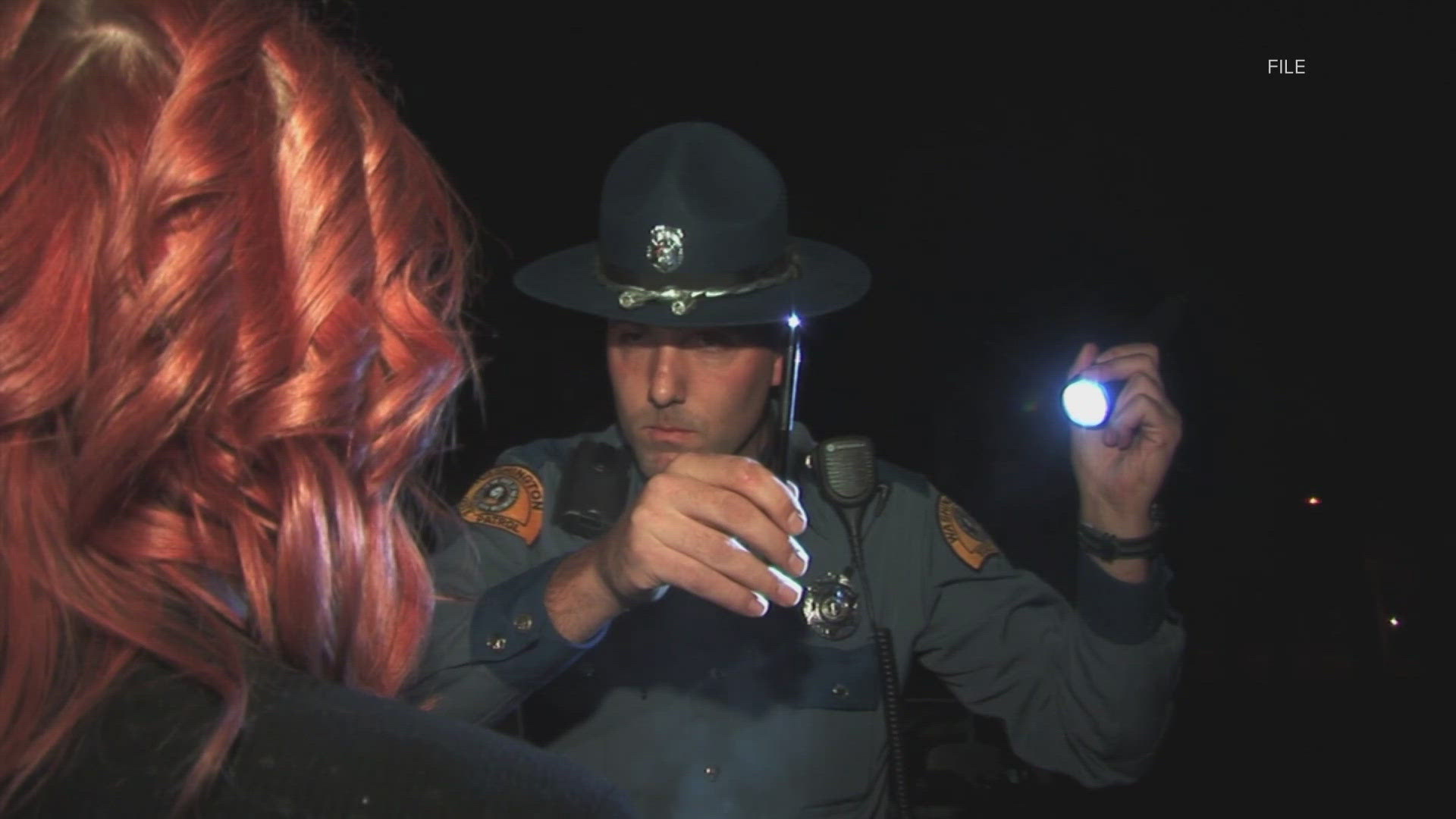Editor's note: Above video is from 2016 when the expansion of Washington's involuntary commitment law, known as Ricky's Law, was introduced
A proposal to extend the time period of Washington's involuntary treatment act is dividing rights groups and mental health advocates in Olympia.
Senate Bill 5720, from Sen. Manka Dhingra, D-Redmond, would allow people having a mental health or substance abuse crisis to be held for up to five days before seeing a judge, putting Washington among the states with the longest such holds nationwide.
The change would target the state's involuntary treatment act, which currently allows authorities to hold non-criminal patients against their will for 72 hours before an initial hearing.
In recent years, Washington's involuntary treatment act was expanded to include forced commitment for substance abuse disorders. Ricky's Law is named for suicide survivor Ricky Garcia, who pushed for involuntary commitment for drug abusers at risk of harming themselves.
But while supporters say that would give more time for treatment, groups including the state's disability rights watchdog have objected.
A public hearing for the bill was held Saturday, likely one of the last before lawmakers decide whether to bring it to a full vote of the state House.
Extending the length of involuntary holds to five days would move Washington out on the national spectrum: Currently, 38 states and the District of Columbia require people held during mental health crises to see a judge within 72 hours or less, according to a survey by the Treatment Advocacy Center, a national advocacy group.
Along with a longer hold time, Dhingra's proposal includes other changes: It would allow forced medication for patients outside of hospitals, and broadens the definition of 'risk of harm' to self or others — a critical threshold in the current law.
Under the proposal, risk of harm would include the reasonable fear of a third party, even if they hadn't been directly threatened.
In a hearing for the bill, Dhingra said a longer holding period would streamline the system and help patients.
Dhingra said many holds end up getting extended under the current law anyway, and the money spent setting up the extension agreements would otherwise go to treatment costs. Longer hold times would mean less money spent filing extensions, Dhingra said, and more time for treatment.
"It takes anywhere from three to five days for someone to detoxify," Dhingra said of people dealing with drug addiction. "If we want our doctors to do a comprehensive evaluation... they need time."
Two national groups also support the bill: The National Alliance on Mental Illness and the Treatment Advocacy Center.
Lisa Dailey, of the Treatment Advocacy Center, said data collected by her group showed keeping patients longer at first can lower the risk of a repeat visit.
But David Lord, policy director for Disability Rights Washington, said at an earlier hearing that even the current law already sees patients spending much of their hold time waiting, and only getting treatment when their time is nearly up.
Lord's group is the state's disability rights watchdog under federal law, which requires one such designated group in every state.
Mike De Felice, a public defender in King County who also represents a state public defenders' group, said a five-day hold effectively equals seven days, since any five would overlap with a weekend.
"These are not people who have even committed a crime," De Felice said. "They need to see a judge in a timely manner."
If a person still needs treatment when their hearing arrives, De Felice said, a judge can order them not to be released.
De Felice also questioned a clause in the proposal allowing forced medication outside of medical facilities.
Current law allows medication like antipsychotics to be forcibly administered if someone is detained, but the proposal would allow judges to require it even after a person was released on a supervisory order.
De Felice said that could include forced injections, and medications that could risk adverse reactions with street drugs potentially being used by patients struggling with addiction. Outside of a controlled medical environment, De Felice questioned how authorities would be able to safely put such an order into action.
The original version of Dhingra's bill would have expanded a type of temporary certification, allowing traditional hospitals to hold substance-abusing patients on involuntary orders, potentially unlocking significant new capacity in parts of the state still waiting for dedicated facilities that haven't opened yet.
But lawmakers attached an amendment pushing that requirement out to 2026, by which time dedicated facilities are expected to be open statewide.
Democratic Sen. Joe Nguyen, of White Center, was one of only two votes against the bill when it passed its first full-chamber vote, in the Senate in early March.
On Thursday, Nguyen said he sympathized with the overall goals of the bill, including giving more time for treatment, but said he couldn't get past the question of due process.
"Five days is a long time for someone to be held," said Nguyen.



